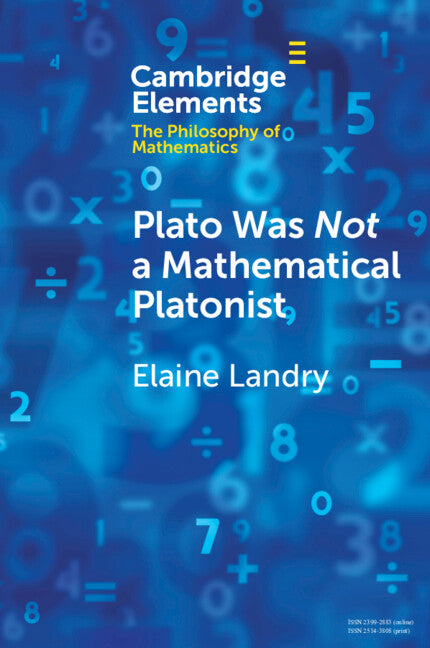Freshly Printed - allow 8 days lead
Couldn't load pickup availability
Plato Was Not a Mathematical Platonist
This Element shows that Plato was not a mathematical Platonist, and kept a clear distinction between mathematical and metaphysical realism.
Elaine Landry (Author)
9781009313780, Cambridge University Press
Paperback / softback, published 26 January 2023
62 pages
22.9 x 15.2 x 0.3 cm, 0.099 kg
This Element shows that Plato keeps a clear distinction between mathematical and metaphysical realism and the knife he uses to slice the difference is method. The philosopher's dialectical method requires that we tether the truth of hypotheses to existing metaphysical objects. The mathematician's hypothetical method, by contrast, takes hypotheses as if they were first principles, so no metaphysical account of their truth is needed. Thus, we come to Plato's methodological as-if realism: in mathematics, we treat our hypotheses as if they were first principles, and, consequently, our objects as if they existed, and we do this for the purpose of solving problems. Taking the road suggested by Plato's Republic, this Element shows that methodological commitments to mathematical objects are made in light of mathematical practice; foundational considerations; and, mathematical applicability. This title is also available as Open Access on Cambridge Core.
1. Introduction
2. The interprative lay of the land
3. The divided line
4. Book 7
5. The good in mathematics
6. Mathematics versus metaphysics
References.
Subject Areas: History of mathematics [PBX], Philosophy of mathematics [PBB], Western philosophy: Ancient, to c 500 [HPCA]


